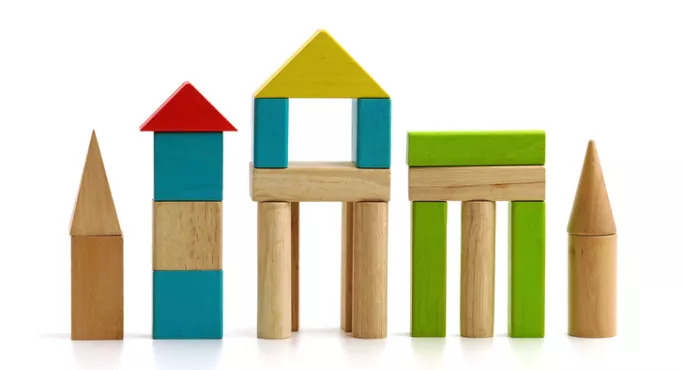“One counter is not a car, but it represents, in a mathematically structured way, one car,” says Dr Debbie Morgan.
“Tomorrow it might represent a pineapple, or a piece of ribbon, but [students have] generalised that it’s a unit of one at that stage. Then later, we can move pupils on to collecting together units of more than one thing, known as unitising.”
And the thing about unitising, she explains on the latest edition of the Tes Mathematips podcast, is that it’s efficient.
It is, simply, the idea of grouping several things under one name, and counting them or doing other mathematical things with them accordingly.
It’s where many things are treated as one thing; a packet of 10 chocolate biscuits, for example. They are one packet, but at the same time they are 10.
Dr Morgan calls unitising “succinct”. It is a key concept across many areas of mathematics, bringing things together and helping students to really get at the deep similar mathematical structure underneath.
A powerful concept
That’s why using counters can be so powerful, she tells me, because “counters can represent anything, they are not tied to any concept. They can both represent and abstract the mathematics”.
Another example of unitising might be when students begin to graph using scales that “jump up” by more than one at a time, for example in intervals of twos, fives or tens.
The same idea pervades measurement, helping students to understand that one centimetre is one but is also 10, because it contains 10 millimetres.
“Because the structure is the same in all of those topics,” Morgan says, “it helps children to see the same thing and to connect maths and deepen understanding.”
Numberblocks know-how
Morgan has an impressive CV; she is the director for primary at the National Centre for Excellence in the Teaching of Mathematics, the lead on the Shanghai Maths teacher exchange, and - perhaps most excitingly - the mathematical consultant on the BBC series Numberblocks.
“Numberblocks are characters; they are numbers, made of blocks,” she tells me. “But the characters ARE the maths - they reveal structure.”
The numberblocks use unitising all the time to explore mathematical ideas, popping in and out of shape by grouping their bodily blocks differently.
“It’s very exciting in Numberland when 16 arrives…” she grins.
Listen to the episode to find out more about Numberblocks: the teenage rebellion years; the difference between a number track and a number line; Morgan almost-but-not-quite singing a song; how algorithms have had a bad press; rebelling against the brackets; and the most outstanding pun I have heard in some time (not written by me or Darren Macey on this occasion).
Then the usual thoughtful Twitter questions and jokes, during which Debbie (as is now customary) tells me off for mathematical inconsistencies.
Listen now
You can listen for free by downloading the podcast from your podcast platform (type “Tes - the education podcast”) or you can listen below.
Debbie mentions:
Professor Terezhina Nunes’ research: https://www.nuffieldfoundation.org/key-understandings-mathematics-learning
NCETM professional development materials https://www.ncetm.org.uk/resources/50639
Bruner’s iconic representations http://mcs.open.ac.uk/jhm3/SVGrids/SVGRids_Files/SVG_EIS.html
Gattegno’s work on forcing awareness http://subtle-ed.site/pedagogical-articles/caleb-gattegno-mathematics-teaching/forcing-awareness-of-mathematics/
Numberblocks on BBC iPlayer https://www.bbc.co.uk/iplayer/episodes/b08bzfnh/numberblocks
Lucy mentions:
The development of unitising by Susan Lamon https://pdfs.semanticscholar.org/dc08/9b62b5ae63b3d00c890efb84764b4152ad3a.pdf




